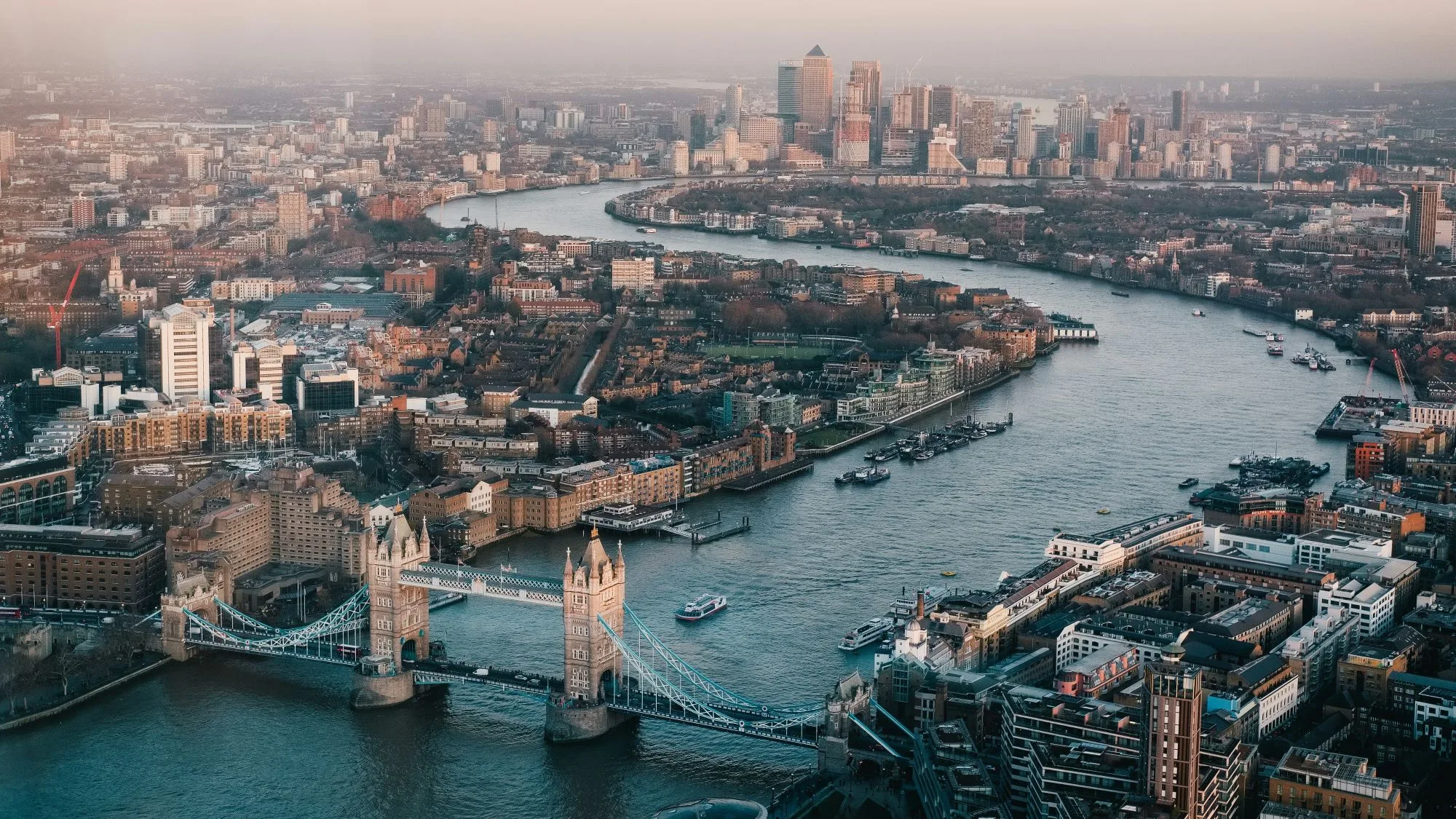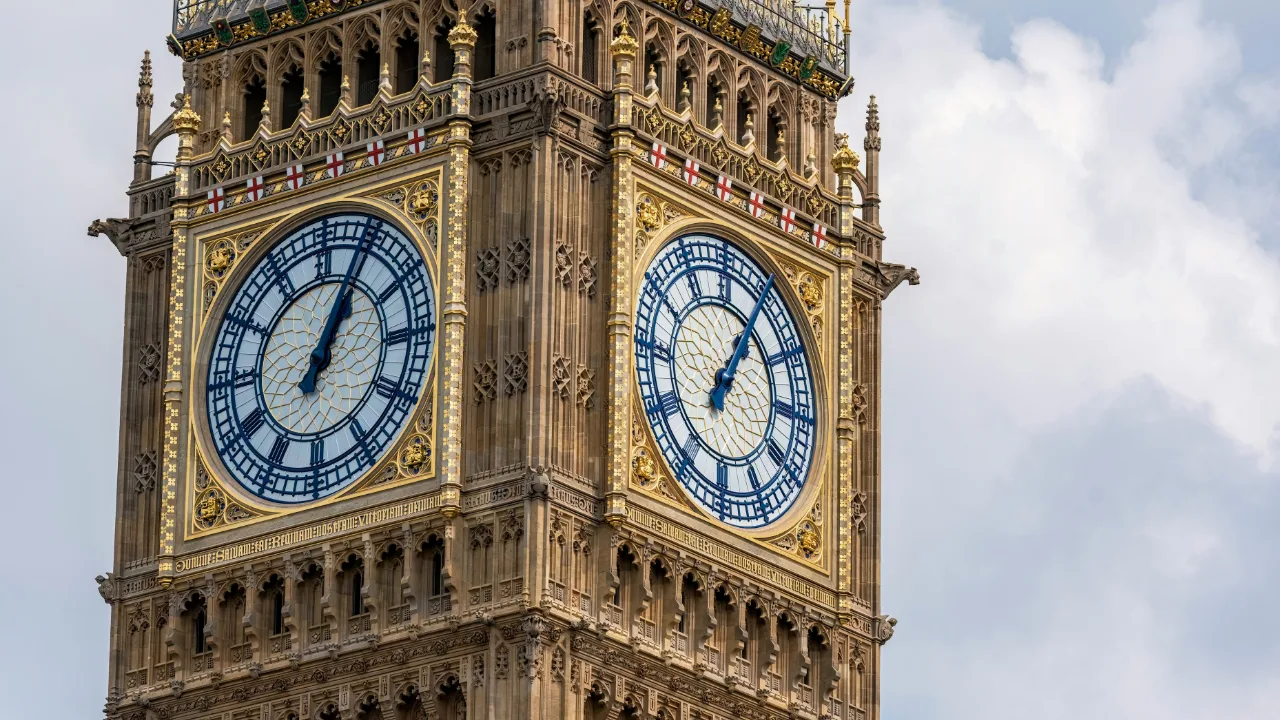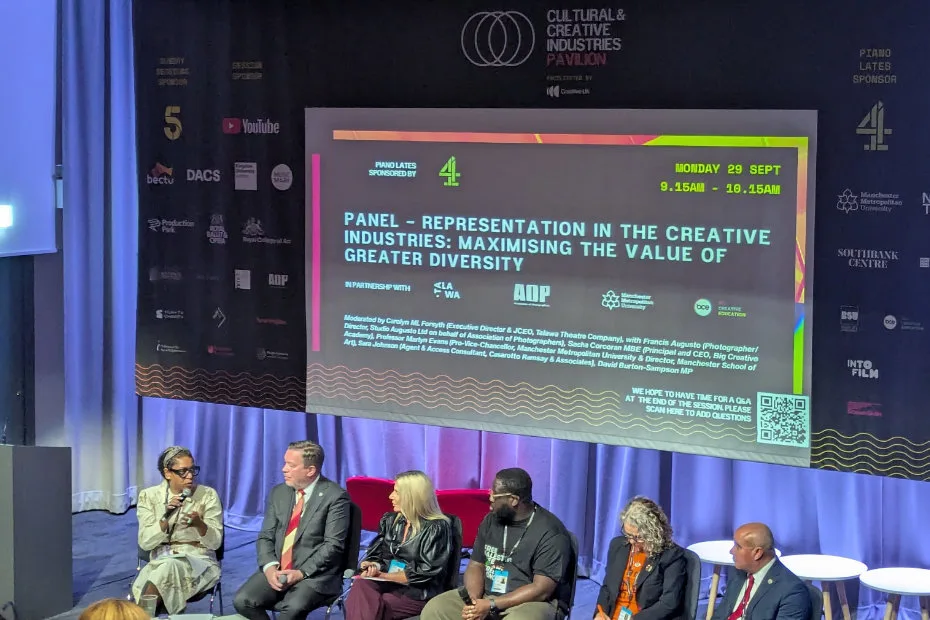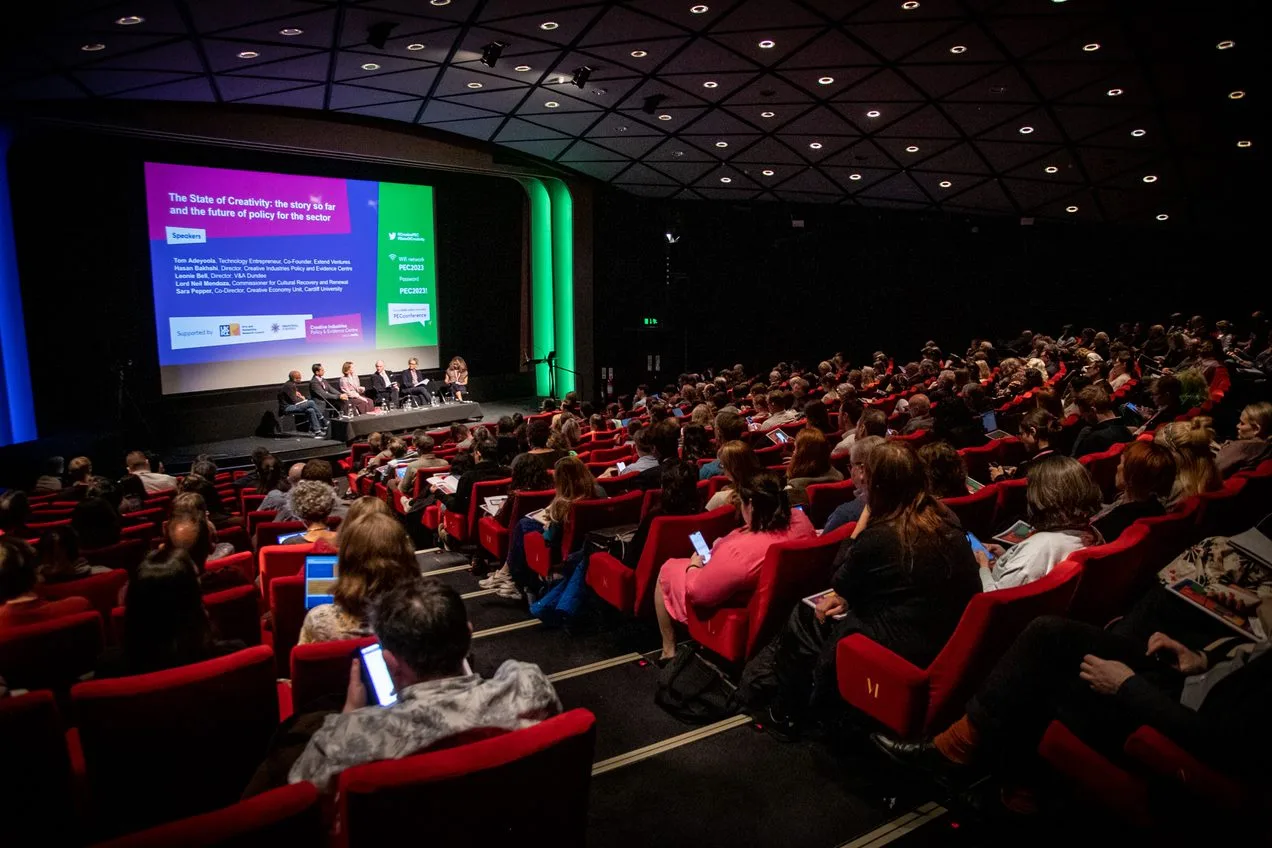The economic value of our creative industries is clear. But are they a priority for Britain’s political leaders?
The impressive growth performance of the UK’s creative industries, from design and advertising to video games, film and music, has meant they are recognised by government as a national strength and a priority for industrial policy.
In 2017, their contribution in current prices gross value added (GVA) is estimated to be 5.5% of total GVA. And in the preceding seven years they grew almost twice as fast as the economy as a whole. They also account for 2.5 million jobs (6.1% of the UK total) and for 11.9% of non-financial businesses.
The economic value of our creative industries is clear. But are they a priority for Britain’s political leaders?
The Creative Industries Policy and Evidence Centre (PEC) is part of the Creative Industries Clusters Programme led by the Arts and Humanities Research Council and funded through the Industrial Strategy Challenge Fund. It was set up to provide independent research and recommendations to fill the gaps in evidence about the strength of the creative industries, and lead to better policies for further growth.
Occasional references
Given the number of candidates standing in the Conservative leadership race, we thought it would be useful to discover a little more about each candidate’s position on the creative industries. In doing this, we learned an uncomfortable truth – that the creative industries are mentioned far less frequently than other industries.
Using Hansard, the official report of all parliamentary debates, we found that out of the current ten candidates, only six have mentioned the phrase ‘creative industries’ while speaking in Parliament, and of those six, only four have mentioned the sector more than once. This is all the more concerning given that three of these candidates have previously been Secretary of State for the Department of Digital, Culture, Media and Sport (DCMS) and would naturally have been expected to refer to the creative industries, given that it was their job.
In the House of Commons, the phrase ‘creative industries’ was referenced 1,271 times since the start of the 2005 Parliament. By comparison, the ‘construction industry’ received almost double that at 2,301. But even references to the construction industry pale in comparison to ‘financial services’ at 5,374 citations.
Candidates in Parliament
The leadership candidates are listed below, first by the frequency with which they have made reference to the creative industries in the Commons chamber, Westminster Hall and public bill committees, and then by how frequently they have referred to specific creative sub-sectors. When a sub-sector was mentioned, we looked into the use of the phrase and excluded instances where the context was not relevant. For example, an MP mentioning they had heard something on the radio would not be included, whereas an MP discussing the economic value of radio would be.
Matt Hancock (MP since 2010) was Minister for Digital and Culture from 2016–18 and Secretary of State for Culture in 2018, and has mentioned the phrase ‘creative industries 15 times in Parliament. While he was minister, the Industrial Strategy Sector Deal for the creative industries and the Digital Economy Bill were both introduced. Since becoming Secretary of State for Health, he has described the arts and social activities as essential to health and wellbeing.
Sajid Javid (MP since 2010) was Secretary of State of Culture from 2014–15 and for Business from 2015–16, and has mentioned the phrase ‘creative industries’ 12 times while speaking in Parliament. In his spoken contributions, he has particularly highlighted the economic contribution, job creation and growth of the industry.
Jeremy Hunt (MP since 2005) was shadow Secretary of State for Culture from 2007–10 and became Secretary of State from 2010–12. He has mentioned the ‘creative industries’ in the House of Commons eight times since becoming an MP. While he was Secretary of State, the government passed legislation on creative industries tax credits.
Andrea Leadsom (MP since 2010) has used the phrase ‘creative industries’ four times while speaking in Parliament, highlighting the issues of tax credits and broadband. Her other spoken contributions referencing the sector tend to note the importance of preserving the Houses of Parliament as a key heritage asset for the nation.
Esther McVey (MP from 2010–15 and since 2017) has said the phrase ‘creative industries’ once during a speech in Parliament, noting the value of the music and entertainment industries to the economy. She has also spoken about the value of local radio, called for better software education, and was previously a children’s TV presenter.
Dominic Raab (MP since 2010) has mentioned ‘creative industries’ once in a speech, although the context was about how the legal industry underpins other industries including the creative sector.
Boris Johnson (MP from 2001–08 and since 2015) has never used the phrase ‘creative industries’ while speaking in Parliament, although on one occasion he made note of the strength of the UK’s TV industry exports.
Michael Gove (MP since 2005) has never used the phrase ‘creative industries’ while speaking in Parliament, although he has noted the contribution of Stoke-on-Trent’s potteries to the UK’s industrial heritage and has spoken about arts education.
Mark Harper (MP since 2005) has never used the phrase ‘creative industries’ while speaking in Parliament. However, he has discussed the lack of digital TV coverage and problems of a digital divide for rural constituencies.
Rory Stewart (MP since 2010) has never mentioned the phrase ‘creative industries’, although he has highlighted issues around rural broadband coverage.
Cause for concern
Ultimately, policies being put in place to help grow the creative industries matter more than the number of times they are referred to by politicians in Parliament. Nonetheless, the fact that few of the prospective leadership candidates have seen reason to even mention the creative industries is a cause for some concern for those who want to see those policies put in place.
This blog was originally published by Arts Professional on 12th June 2019.
The PEC’s blog provides a platform for independent, evidence-based views. All blogs are published to further debate, and may be polemical. The views expressed are solely those of the author(s) and do not necessarily represent views of the PEC or its partner organisations.
Related Blogs
10 facts about Creative Industries growth potential
Discover ten key findings from the report 'High-Growth Potential Firms in the UK's Creative Industri…
Why London is investing in Creative Enterprise Zones
London Mayor Sir Sadiq Khan announces £2.2 million in new funding for Creative Enterprise Zones.
Research resources on Creative Clusters
We’ve collated recent Creative PEC reports to help with the preparation of your Creative Cluster bid…
What UK Job Postings Reveal About the Changing Demand for Creativity Skills in the Age of Generative AI
The emergence of AI promises faster economic growth, but also raises concerns about labour market di…
Creative PEC’s digest of the 2025 Autumn Budget
Creative PEC's Policy Unit digests the Government’s 2025 Budget and its impact on the UK’s creative …
Why do freelancers fall through the gaps?
Why are freelancers in the Performing Arts consistently overlooked, unseen, and unheard?
Insights from the Labour Party Conference 2025
Creative PEC Policy Adviser Emily Hopkins attended the Labour Party Conference in September 2025.
Association of South-East Asian Nations’ long-term view of the creative economy
John Newbigin examines the ASEAN approach to sustainability and the creative economy.
Culture, community resilience and climate change: becoming custodians of our planet
Reflecting on the relationship between climate change, cultural expressions and island states.
Cultural Industries at the Crossroads of Tourism and Development in the Maldives
Eduardo Saravia explores the significant opportunities – and risks – of relying on tourism.
When Data Hurts: What the Arts Can Learn from the BLS Firing
Douglas Noonan and Joanna Woronkowicz discuss the dangers of dismissing or discarding data that does…












